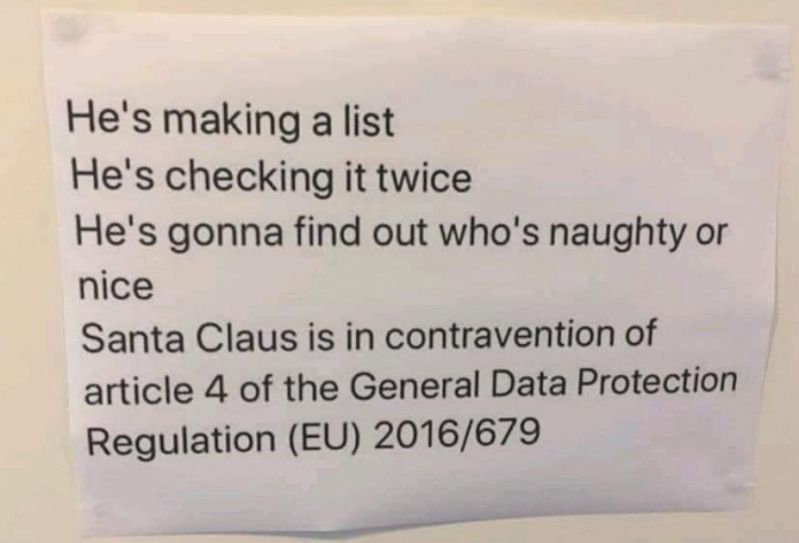Ranter
Join devRant
Do all the things like
++ or -- rants, post your own rants, comment on others' rants and build your customized dev avatar
Sign Up
Pipeless API

From the creators of devRant, Pipeless lets you power real-time personalized recommendations and activity feeds using a simple API
Learn More
Comments
-
I'm all for GDPR in principle but I kinda feel like this should be handled by browsers not the websites. Maybe in a way similar to Android's app permissions system.
-
 joykill3398yGdpr goes beyond what is digital though... It applies to any data you collect... If you have a paper sheet with personal information, you can also only use it for it's intended use case...
joykill3398yGdpr goes beyond what is digital though... It applies to any data you collect... If you have a paper sheet with personal information, you can also only use it for it's intended use case... -
@joykill that's a very good point. I suppose website owners would still have to hold and honour their users' GDPR preferences regardless. I just think that if the site had to request permissions from the browser and the browser then asked it of the user we would have an extra layer of protection and a consistent UX. There wouldn't be any shift in responsibility but it would require the browser manufacturers, IETF and W3C to agree a standard.
Related Rants

 Ghostery just leaked all of their users email addresses in their GDPR compliance email.
Ghostery just leaked all of their users email addresses in their GDPR compliance email. 😂😂😂
😂😂😂
I just want to add my 2 Cents to the all this GDPR chaos. Because I feel lots of you are missing the point here.
When reading here about GDPR I hear all kinds of fair statements of how flawed it is and how it's mainly hurting the small companies etc etc.
I agree, at this state GDPR might actually be doing more harm than good.
However, I don't think that is what it is about. It's about going in the right direction. If you read/look over the course of history we've had several technological revolutions. Industrial, renaissance. They all start the same:
"This technology is going to change everything, it's going to solve all our problems!" It's something holy. Something that shouldn't be touched or regulated, only embraced.
But as we all know it wasn't all that pretty.
Industrial revolution was hard super underpaid, dirty work. Children had to work too. People were getting sick. Lots of alcoholism, depression.
And what made the factories start taking better care of their employees? Regulation.
Once fines start to come, companies will have to adapt.
We have to learn and understand that these systems like government, company, capitalism. They're built for reasons. They all exist for reasons. And only when it is in balance, things will flourish.
So I encourage you all to stay as critical as you are, but to give it a chance. To have a bit of faith.
It might just turn into something worthwhile!
Thanks for reading!:)
rant
perspective
gdpr
embrace
stay sharp